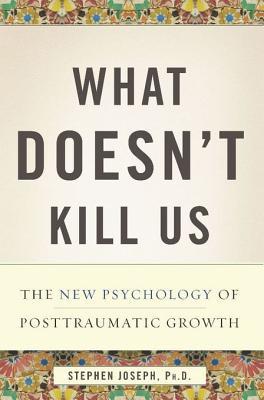
What Doesn't Kill Us
The New Psychology of Posttraumatic Growth
کتاب های مرتبط
- اطلاعات
- نقد و بررسی
- دیدگاه کاربران
نقد و بررسی

August 22, 2011
“Trauma,” with its connotation of experiential shock and protracted emotional pain, has become one of the bywords of modern culture. Yet, maintains British psychologist Joseph, trauma can lead to personal growth and a richer life, including a “reprioritization of values” and a greater appreciation of the gift of life. While part of the still relatively new movement of positive psychology, Joseph is not pollyannaish; he acknowledges that the stress that follows trauma can be intense and extensive. The most helpful part of Joseph’s book is a postscript in which he offers guidance for readers trying to manage their emotions, including six markers of growth, beginning with taking stock and expressing change in action. The book fails to differentiate between types of trauma—surely someone who has witnessed a murder, suffered rape, or been tortured undergoes a different recovery process than someone who has been in a serious car accident—and offers only cursory descriptions of such therapeutic treatments as “compassionate mind training.” As traditional views of the consequences of trauma have been too dour, Joseph’s claim, in this otherwise informative and thoughtful book, that trauma can lead to an “existential journey to a richer life” may be a touch too upbeat.

























دیدگاه کاربران